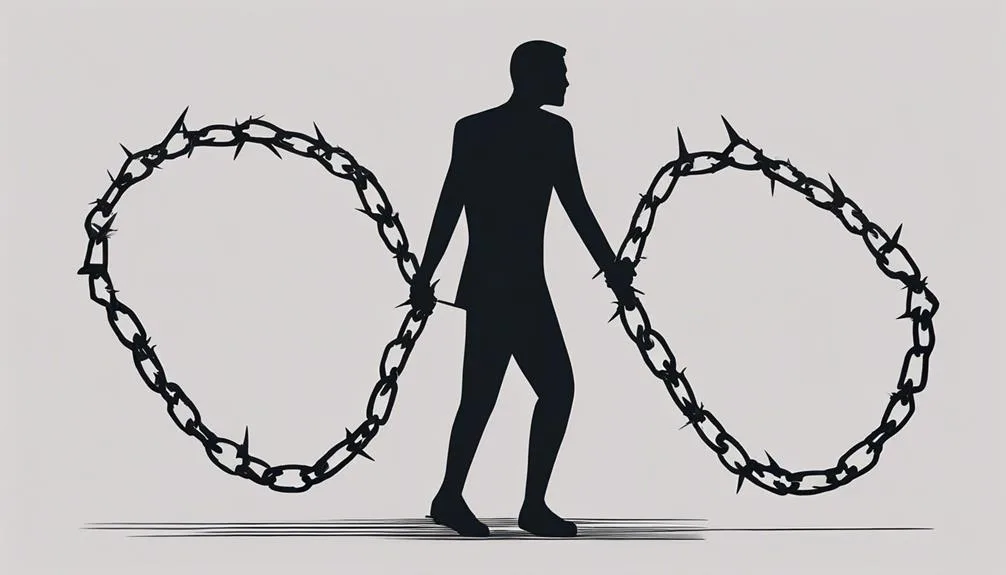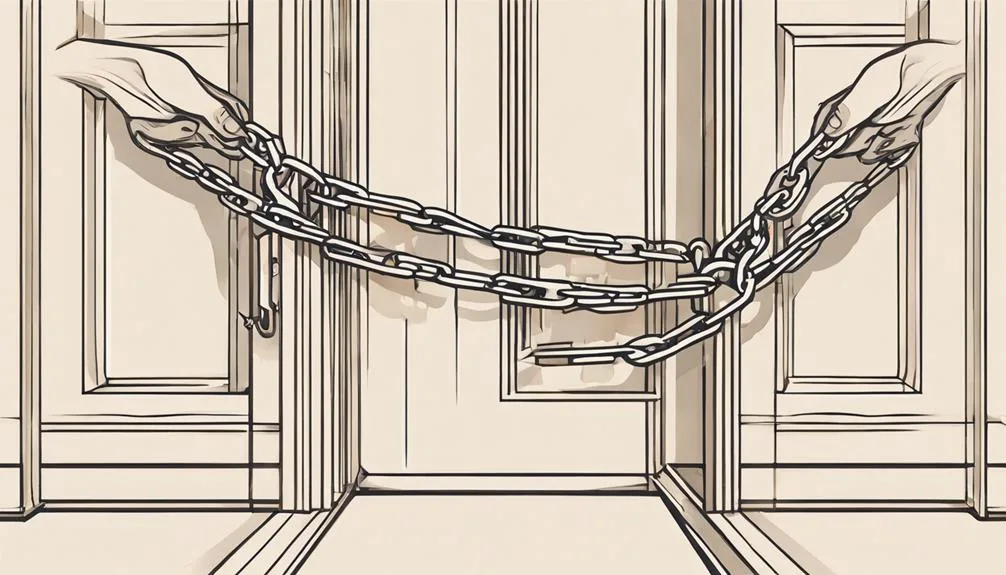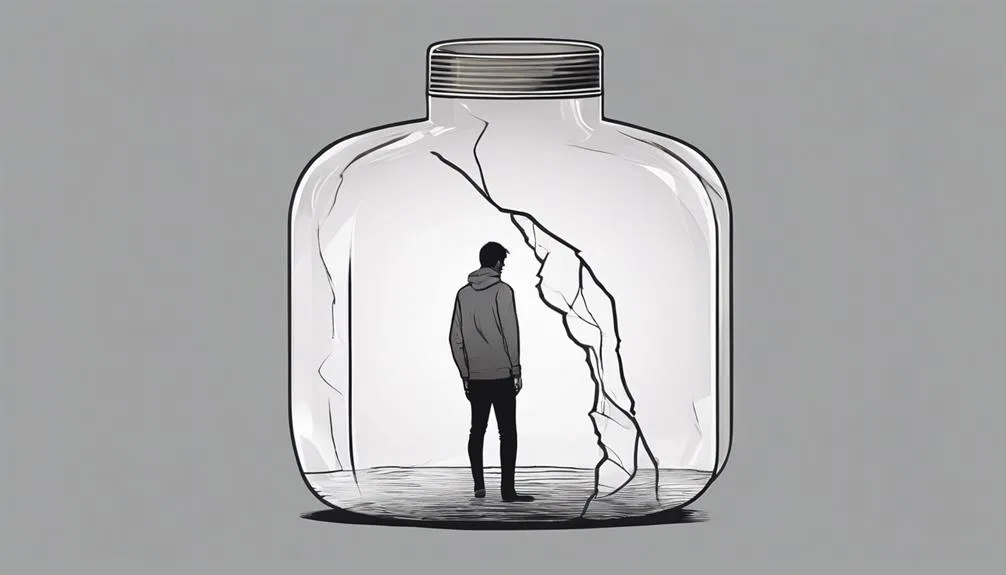Leaving a toxic relationship is tough. You're stuck because you care a lot and worry about being alone. You hope things will get better, which makes you stay. Also, money problems and what friends might think play a big role.
But there are deeper, more personal reasons that make it hard to leave. Understanding these reasons can help us figure out why staying sometimes feels easier than leaving, even when we know it's not good for us.
Key Takeaways
- Emotional attachments and trauma bonding often keep people anchored in toxic relationships despite the harm.
- Fear of loneliness and loss of self-identity can make the idea of leaving seem worse than staying.
- Financial dependency and employment concerns create practical barriers to exiting toxic relationships.
- Social pressure and cultural expectations can discourage individuals from ending unhealthy relationships.
Emotional Attachment

Understanding your emotional attachment is the first step in recognizing the hold a toxic relationship may have on you. Your attachment style, shaped by early experiences, influences how you connect with others.
In toxic relationships, you might find yourself stuck due to trauma bonding, which occurs when intense emotional experiences bind you to your partner. This bond isn't about love; it's a cycle of highs and lows, with the highs feeling like rewards amidst the pain.
Recognizing this pattern is essential. It's not just about the good times; it's understanding why those moments feel disproportionately significant. Breaking free requires acknowledging these dynamics, seeing beyond the attachment, and understanding that it's not a healthy foundation for love.
Fear of Loneliness

Facing the fear of loneliness is often a significant barrier to leaving a toxic relationship. You might worry about being alone, fearing that you won't find someone else who understands you or accepts you as you are. This fear can be exacerbated by self-identity loss, a common consequence of toxic relationships.
Over time, your sense of self may have become so intertwined with your partner's that the thought of being single feels like losing a part of yourself. Additionally, confidence erosion plays a critical role. The constant criticism and belittlement you've faced may have chipped away at your self-esteem, making the idea of stepping out into the world alone seem challenging.
Overcoming these fears is an important step toward regaining your independence and happiness.
Financial Dependency

Another significant hurdle to leaving a toxic relationship is financial dependency, as you might find yourself worrying about how you'll manage your finances on your own. This concern isn't unfounded, as separating from a partner often means maneuvering through:
- Splitting shared incomes or assets
- Assuming full responsibility for debts
- Overcoming credit control issues that may limit your financial independence
- Facing potential employment barriers that hinder your ability to earn
These challenges can make the prospect of leaving seem intimidating. You may fear the unknowns of financial autonomy, especially if your partner has primarily managed the finances or if your employment opportunities are limited.
Overcoming financial dependency requires careful planning and support, but it's an essential step toward reclaiming your independence and well-being.
Hope for Change

Despite the challenging challenges of leaving a toxic relationship, there's real hope for change and a brighter future ahead. Often, you're caught in the illusion of change, believing that with enough love and effort, your partner will transform. This optimism bias can cloud your judgment, making it hard to see the situation for what it truly is.
| Factor | Description | Impact on Decision |
|---|---|---|
| Change Illusion | Belief in potential transformation | Hinders clarity |
| Optimism Bias | Overestimation of positive outcomes | Delays action |
| Realistic Assessment | Understanding true likelihood of change | Encourages decision |
| Support Systems | Access to external help and perspective | Enables action |
Recognizing these factors is imperative. You're capable of breaking free, armed with awareness and support.
Social Pressure

Social pressure can weigh heavily on your decision to leave a toxic relationship, often making you second-guess what's truly best for you. Cultural expectations and peer influence play significant roles in how you perceive your relationship and its worthiness.
Here's how social pressure manifests:
- Cultural Expectations: Society often has predefined notions about relationships and marriage, pushing you to 'make it work' at all costs.
- Peer Influence: Friends and family might urge you to stay for various reasons, from preserving social image to the belief in fixing things.
- Fear of Judgment: You're worried about how others will view your decision to leave.
- Social Isolation: The fear that leaving might result in losing mutual friends or community support.
These factors collectively can cloud your judgment, making it harder to prioritize your well-being.
Conclusion
Understanding the complex web of emotional ties, fear of loneliness, financial dependence, hope for change, and social pressure reveals the deep challenges of leaving a toxic relationship. Acknowledging these factors illuminates the path to liberation and underscores the importance of seeking support.
As difficult as it may be, prioritizing your well-being is paramount. The journey toward a nurturing, healthy relationship begins with a single, courageous step.
What steps will you take today to move closer to the happiness and support you deserve?

